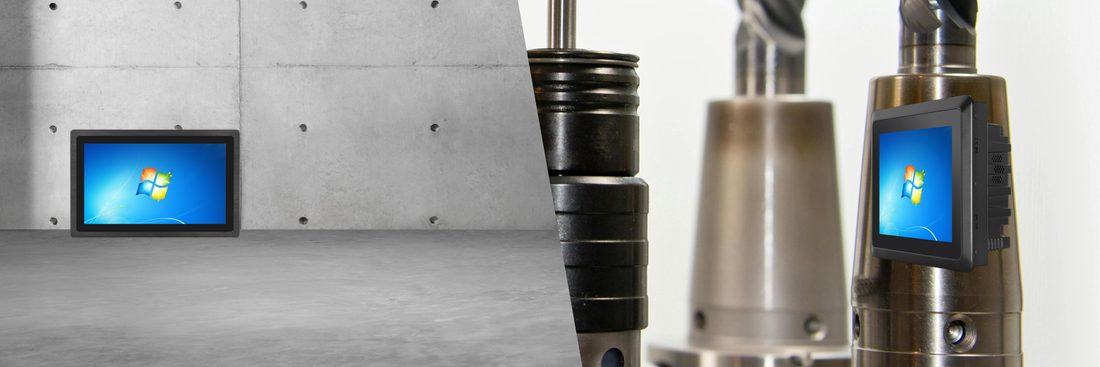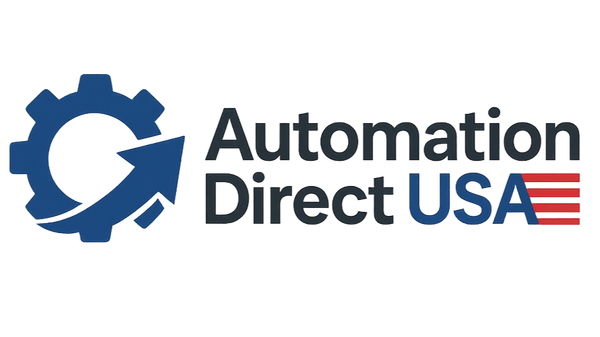
Comprehensive Guide to Selecting the Ideal Industrial PC: Key Factors for Consideration
Comprehensive Guide to Selecting the Ideal Industrial PC: Key Factors for Consideration
In the fast-evolving world of industrial automation and computing, selecting the right industrial PC is crucial for ensuring the reliable performance of mission-critical applications. Industrial PCs (IPCs) are purpose-built to withstand demanding conditions, such as extreme temperatures, high vibrations, dust, and moisture, making them essential for various sectors, from manufacturing plants to IoT-driven systems. With so many different types of industrial PCs available, how can you ensure that you choose one that meets your unique needs? Below, we explore seven crucial factors that can guide you in selecting the right industrial PC for your operation.
- Performance: Picking the Right CPU for Your Workloads
The performance of an industrial PC primarily depends on the central processing unit (CPU). The CPU dictates the speed and capability of the system, determining how well it can handle your computing needs. An industrial computer running demanding software, managing data-heavy processes, or functioning in high-performance environments requires a powerful processor.
Choosing the wrong CPU can lead to operational bottlenecks, sluggish performance, and frequent downtime—costly mistakes in mission-critical industrial environments. On the other hand, over-investing in a processor that is more powerful than your actual needs can also be a waste of resources. Here’s how to decide:
- Low to Medium Workloads: For less demanding tasks such as IoT gateway management or small kiosks, low-power processors like Intel® Celeron® J1900 are often sufficient.
- High-Performance Workloads: For more complex operations such as automation, machine vision, or smart surveillance systems, Intel® Core™ i3, i5, or i7 processors are recommended. These processors offer high computational power and advanced features, such as Intel Turbo Boost and Hyper-Threading technologies, enabling faster multi-thread processing and improved task efficiency.
Key CPU Features to Look For:
- Intel Turbo Boost Technology: Increases the CPU’s clock speed when more power is needed, helping handle demanding tasks more effectively.
- Hyper-Threading Technology: Allows each processor core to handle two threads simultaneously, enhancing multitasking capabilities.
- Intel vPro Management: For remote management, security updates, and troubleshooting, Intel® vPro™ technology integrated into Core i5, i7, or i9 processors is highly beneficial, particularly for systems located in remote or hard-to-reach areas.
- Environmental Factors: Ensuring Durability and Reliability
An industrial PC’s environment plays a crucial role in determining the type of system you need. Industrial PCs are engineered to endure harsh conditions such as extreme temperatures, vibrations, and exposure to dust or water. When selecting an IPC, you must evaluate the following:
- Temperature Tolerance: If your system operates in an environment with extreme heat or cold, ensure that the PC supports a wide temperature range (some systems operate from -40°C to 85°C).
- Shock and Vibration Resistance: Industrial PCs should be ruggedized to withstand constant vibrations, especially if used in vehicles, heavy machinery, or industrial robotics.
- Fanless Design: Look for fanless, cableless models. These systems are built without moving parts to reduce the risk of internal failure from dust ingress or component wear.
- IP Rating: If your environment exposes the system to water, dust, or other contaminants, look for systems with a high IP (Ingress Protection) rating, ensuring protection from both liquid and solid particles.
- Application-Specific Needs: Tailoring the PC to Your Use Case
Industrial PCs are deployed across numerous industries, from food processing plants to autonomous vehicles, each with distinct computing needs. Understanding the specific applications of your industrial PC is essential to ensuring that it can handle the tasks required of it.
For example:
- Industrial IoT and Edge Computing: Requires real-time data processing at the network's edge to minimize latency, often deploying rugged edge computers.
- Autonomous Vehicles and Robotics: Systems need advanced GPU configurations to handle machine learning and inference tasks, as well as high-speed storage for rapid decision-making.
- Medical and Food Processing: May require antimicrobial casing or compliance with specific industry standards such as IP ratings for hygiene.
- Connectivity: Ensuring Seamless Data and Device Integration
In today’s interconnected environments, industrial PCs need robust connectivity to interface with various networks, sensors, and peripheral devices. Common connectivity options include:
- USB 3.1 Ports: For fast data transfers between smart IoT devices.
- Wi-Fi 6, Bluetooth, 4G/5G Connectivity: These are essential for wireless communication in mobile or remote locations.
- Legacy Ports (Serial, RJ45, M12): Many industrial systems still rely on serial communication for reliability, so an industrial PC may need serial ports to support older equipment.
Modular expandability through daughterboards also allows for more flexibility, adding or swapping ports such as HDMI, DP, or additional LAN connections to meet specific application requirements.
- Power Supply: Addressing Power Needs in Remote or Variable Environments
Industrial PCs frequently operate in remote locations where power supply may be inconsistent or limited. These systems often rely on DC power, with voltage ranges between 9-50 VDC, making them adaptable for off-grid or mobile applications.
Additionally, if the PC is deployed in a vehicle, it may require a switchable power mode, capable of operating on a 12/24VDC vehicle battery, providing flexibility for mobile computing.
- Storage and Memory: Balancing Speed, Capacity, and Reliability
Choosing the right storage solution is critical, especially for real-time applications requiring quick access to large amounts of data.
- SSD vs. HDD: Solid-state drives (SSDs) are preferable for environments with heavy vibrations or shocks, as they have no moving parts. SSDs are also much faster than traditional hard drives, making them ideal for tasks that require real-time data processing.
- M.2 NVMe Storage: For the highest speed, NVMe drives offer faster read/write speeds compared to SATA SSDs, useful in tasks that involve high-speed access and large data throughput.
- RAM: More RAM allows for better multitasking and faster access to data during operation. Depending on your application, ensuring sufficient RAM capacity can significantly improve your system’s performance.
- Operating System Compatibility: Ensure Seamless Integration
Ensuring that your industrial PC’s hardware and software are fully compatible with your operating system (OS) is vital for smooth operation. The OS should be tested thoroughly to ensure compatibility with all installed components. Many industrial PCs support Windows, Linux, or custom real-time OS configurations.
For critical applications, it may be essential to select an OS with long-term support, ensuring updates and security patches continue throughout the system’s operational life. Custom configurations, especially for embedded systems, may also necessitate an OS tailored to specific industry standards.
Final Considerations
When selecting an industrial PC, it's important to strike a balance between performance, durability, and connectivity. By focusing on the environmental conditions, performance needs, and specific application requirements, you can configure a system that ensures operational efficiency and longevity. Whether you need a rugged edge PC, an industrial IoT solution, or a powerful automation machine, each aspect of the PC—from the processor to the storage and connectivity options—must be carefully evaluated.
For expert guidance and help in selecting the right industrial PC for your business, IMDTouch offers a range of high-performance computing solutions tailored to diverse industries and environments. Visit IMDTouch or contact us at support@IMDTouch.com for more details on how we can help you build the perfect industrial computing system for your needs.
Stay informed and stay connected with reliable, cutting-edge industrial computing solutions that meet your exact specifications.
